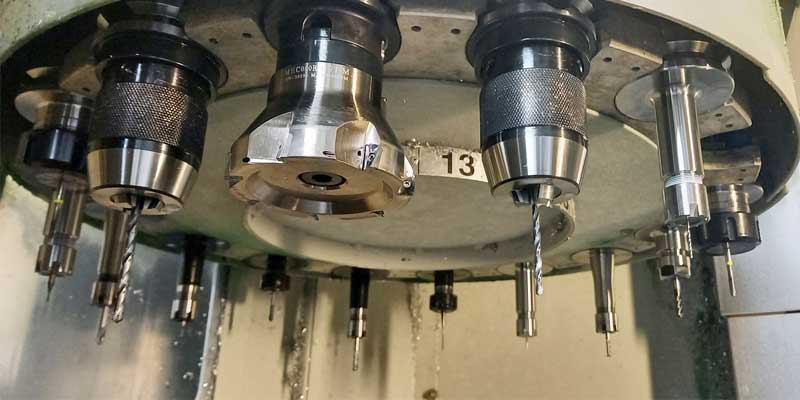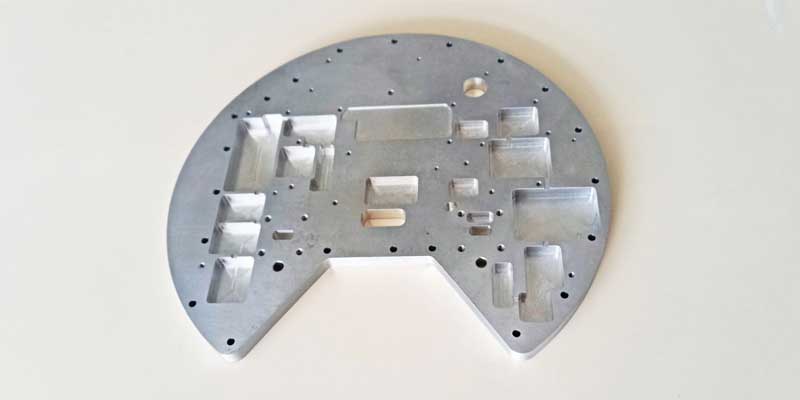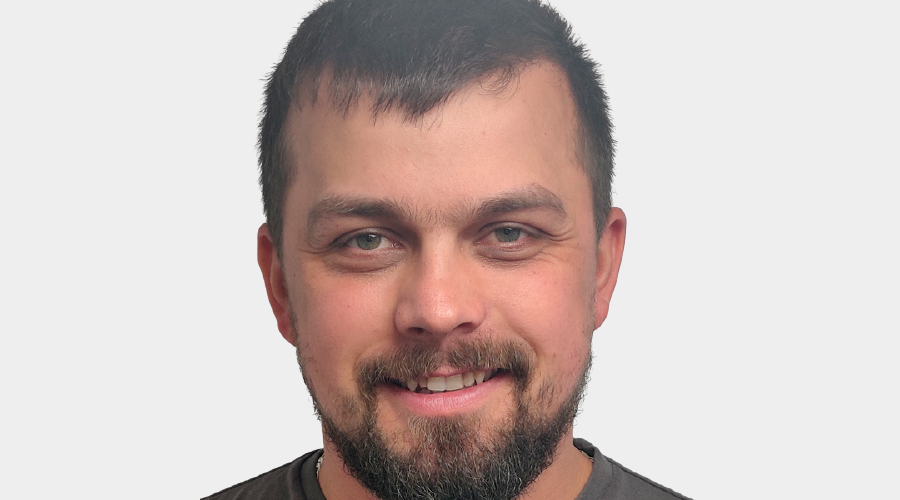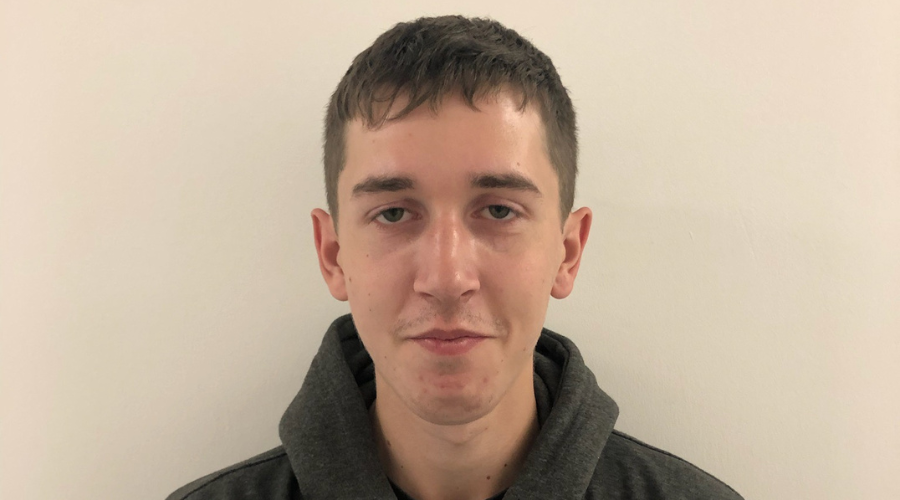- Home
- CNC Machining
- CNC Materials
CNC Materials

Materials for CNC machining prototype parts
CNC machining from solid is more accurate than 3D printing, offers a wider range of materials and ensures the material properties are isotropic. Almost any metal, alloy or engineering plastic can be CNC machined, making this a quick and cost-effective way to produce simple or complex parts.
Metals and alloys for CNC machining prototype parts
If you need prototype parts quickly, we offer a three-day Express service (learn more about our Service levels here). For the Express service, we stock the most commonly specified metals and alloys:
Aluminium alloy 6082.
A medium-strength alloy with excellent machinability and corrosion resistance. We buy it in a wide range of sizes to minimise material removal and machining time (NB we only stock certain sizes for our Express service). This alloy can be welded and brazed.
Stainless steel, AISI grade 304.
The most versatile and commonly specified grade of austenitic stainless steel, also referred to as A2 stainless steel or 18/8 stainless steel. It has excellent corrosion resistance but is unsuitable for use in chloride environments. 304 stainless steel is non-magnetic, though cold working can make it slightly magnetic. This grade has better machinability than 316 stainless steel, excellent weldability and can be brazed. Available in plate, bar and tube (NB we only stock certain sizes for our Express service).
Stainless steel, AISI grade 316.
Better strength, hardness and corrosion resistance than 304. Also known as A4 stainless steel and ‘marine grade’ stainless steel, it is suitable for use in medical devices and laboratory equipment, as well as applications in the food, pharmaceutical and chemical industries. 316 grade requires care when machining to minimise work hardening, and cold working can make it slightly magnetic. This grade has excellent weldability and can be brazed. Available in plate, bar and tube (NB we only stock certain sizes for our Express service).

Other commonly used metals and alloys for CNC machining prototype parts
An excellent conductor of electricity and heat, but ductile and relatively soft. Easily machined.
Denser than aluminium but otherwise the mechanical properties are similar, depending on the alloys. Popular for gears, bushes and parts that need to be polished and electroplated. Good machinability.
A relatively tough and high-strength alloy, with a lower coefficient of friction and better corrosion resistance than brass. Often used for bushes and bearings. Good machinability.
The term covers grades of steel with a carbon content of 0.16% to 0.29%. Low-cost, excellent machinability, can be surface-hardened and easily welded or brazed. Poor corrosion resistance but many finishing options are available. Widely used for general engineering and functional prototypes.
A generic term for grades of carbon alloy steels characterised by hardness, wear resistance, toughness and good performance at elevated temperatures. Can easily be heat-treated to improve hardness. Tool steels can be welded but the material properties can degrade in the heat affected zone.
Engineering plastics for CNC machining prototype parts
We hold extensive stocks of Acetal and acrylic for our Express service, as well as limited stocks of a further range of engineering plastics. Other engineering plastics can be sourced, depending on availability.
Acetal
Also known as polyacetal, polyoxymethylene (POM), polyformaldehyde and Delrin (DuPont’s trade name). We stock this in black and natural. A strong, rigid, tough engineering plastic with excellent machinability and resistance to creep, moisture, chemicals and fatigue. It also has a low coefficient of friction, low moisture absorption and good electrical properties. Acetal can be bonded using a primer and specific adhesives.
Acrylic
Also known as PMMA (polymethyl methacrylate) and trade names include Optix, Plexiglas and Acrylite. We hold stocks of clear acrylic in a variety of forms and sizes. We can also source sheet, rod and tube in alternative sizes. Excellent optical clarity, strength, stiffness and dimensional stability make acrylic very useful for prototyping and model making. It can be bonded using adhesives and solvents. Material properties are generally better than for polycarbonate (PC), though PC has superior impact resistance and temperature resistance. After machining, acrylic parts can be polished to give a glass-like appearance.
Other commonly used plastics for CNC machining prototype parts
Acrylonitrile Butadiene Styrene has good strength and stiffness, and is resistant to chemicals and impacts. Easily machined but not suitable for use at elevated temperatures. Good machinability and it can be easily sanded, bonded and painted.
A blend of ABS and PC with material properties that depend on the blend, grades and additives. It has the ductility of ABS and the toughness and heat resistance of PC. It also has high strength, stiffness, heat resistance and impact resistance, even at low temperatures. However, ABS/PC has low resistance to fatigue, so care needs to be taken when using this material for functional prototypes. Good machinability.
High-density polyethylene, despite its name, has a low density yet it is also strong, hence it is popular for lightweight parts requiring good strength – though HDPE is less stiff than some other engineering plastics. HDPE has a low coefficient of friction and good electrical insulation, and it is also resistant to moisture and chemicals. Good machinability. Can be bonded using specialist adhesives.
Polybutylene terephthalate is commonly used where electrical insulation is important. It also has good strength and stiffness, a low coefficient of friction, resistance to solvents and is heat resistant to 150°C – but is sensitive to hot water. Similar to PET but with slightly better impact resistance. Good machinability.
Polycarbonate is transparent and has high strength, impact resistance, abrasion resistance, dimensional stability and electrical resistance. It also has good low-temperature impact resistance and heat resistance up to 135°C, can be repeatedly steam sterilised but is sensitive to prolonged exposure to hot water. Resistance to fatigue is poor and PC is only resistant to a limited range of chemicals. Good machinability.
Polyether ether ketone is a high-performance engineering thermoplastic with excellent strength and resistance to wear, abrasion and elevated temperatures. It also has good resistance to water and chemicals, good machinability and can be bonded. PEEK is often used for surgical implants and drug delivery devices, so CNC machining prototypes from the same material is advantageous (NB we do not CNC machine surgical implants).
Polyetherimide is similar to PEEK but costs less and has lower impact strength and a reduced usable temperature range. Nevertheless, PEI is characterised by high strength, stiffness and dimensional stability, even at high temperatures, making it suitable for many structural prototype parts. It also has good chemical resistance, electrical insulation and low thermal conductivity. PEI can be sterilised at 180°C or with ethylene oxide gas or gamma radiation. Often referred to as Ultem (Sabic’s trade name). PEI is popular for medical instruments, has good machinability and can be bonded.
Polyethylene terephthalate (often known as polyester) is a general-purpose engineering plastic with good mechanical performance and dimensional stability. It also has good thermal performance, chemical resistance and low water absorption. Resistance to acids is better than acetal or polyamides (Nylons). Good machinability and can be bonded.
Polypropylene is highly resistant to chemicals and can be sterilised, making it suitable for medical and drug delivery device applications. It has relatively low density and stiffness, but it is excellent for living hinges. PP also has good dimensional stability and is easy to machine with the right setups. Can be bonded if care is taken in the choice of adhesive.
Polyphenylsulfone has high strength and rigidity over a wide temperature range (up to 180°C). It also has high impact strength, dimensional stability, electrical insulation and chemical resistance. Impact strength and chemical resistance are better than PSU. It is also resistant to detergents, disinfectants and can be sterilised, which makes it a good choice for medical applications. Good machinability and can be bonded.
Polysulfone has similar mechanical properties to PEI but is lower-cost and available in a wider range of stock sizes. It benefits from good strength, stiffness, dimensional stability, electrical insulation and resistance to temperatures up to 150°C. It is also resistant to chemicals and sterilisation, and is suitable for continuous use in hot water or steam. PSU is popular for medical and life sciences applications. Good machinability and can be bonded.]
Polytetrafluoroethylene is characterised by a low coefficient of friction, high chemical resistance, excellent electrical insulation, and resistance to low and high temperatures (-260°C to +260°C). Mechanical properties are less good than for many other engineering plastics, though glass- and carbon-filled grades have better dimensional stability. PTFE is often referred to as Teflon (a Chemours brand name). This material has good machinability, though it is difficult to hold tight tolerances. It is also difficult to bond but specialist primers and adhesives are available.
Rigid polyvinyl chloride is strong, stiff, hard and abrasion resistant, with excellent thermal and electrical insulating properties. It is also highly resistant to water and chemicals. PVC is easy to machine to tight tolerances and it can be welded and bonded.
All materials are subject to current stock levels and maybe subject to an increased lead-time due to current trading conditions.
Unusual materials for CNC machining prototype parts
Some of the other materials we CNC machine include wax for investment casting, Tufnol composites, Styrofoam and similar modelling foams, MDF, and RenShape polyurethane or epoxy tooling boards.
We accept most CNC machining challenges but if we cannot undertake the work in-house, we have a network of trusted subcontractors. For instance, CNC machining exotic alloys requires specialist tooling, so we usually outsource this work, together with parts that are physically too large for our CNC machines.
In addition to machining, we offer a range of finishing options for CNC machined prototype parts.
Talk to us
Whatever your requirements for CNC machined prototype parts, talk to us about your project and material choices on 01763 249760 or complete the enquiry form below to request a quote.
CNC Machining team
Our CNC machining team produce accurate, high quality parts with an excellent finish from our suite of CNC machines. Request a quote for your next prototype part.

Greg Gorman
Assistant CNC Manager

David Brassington
Quality Inspector

Michal Mikolajczyk
CNC Team Leader

Ricky McMillan
CNC Operator / Setter

Dan Summerfield
CNC Programmer

Glenn Watts
CNC Operator / Setter

Luke Woodford
Apprentice CNC Machinist

